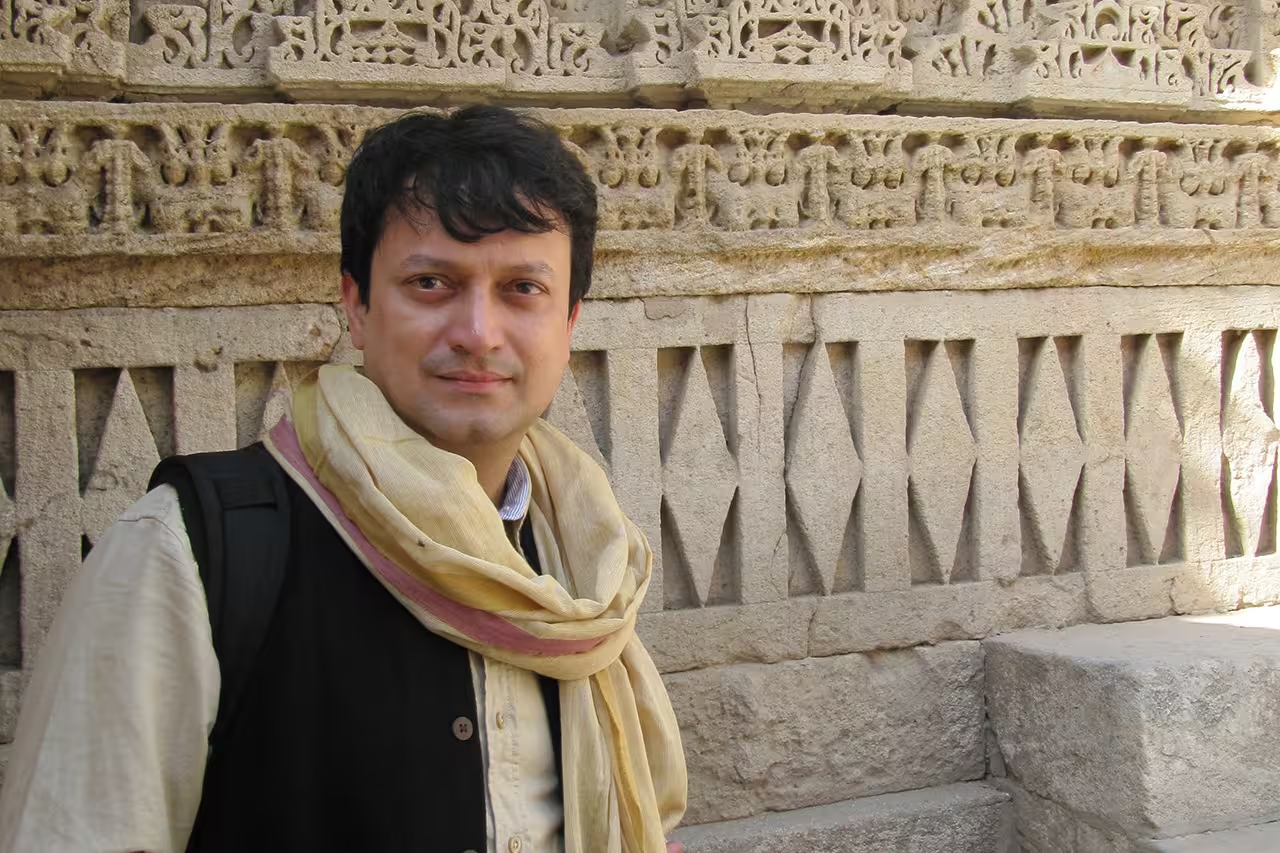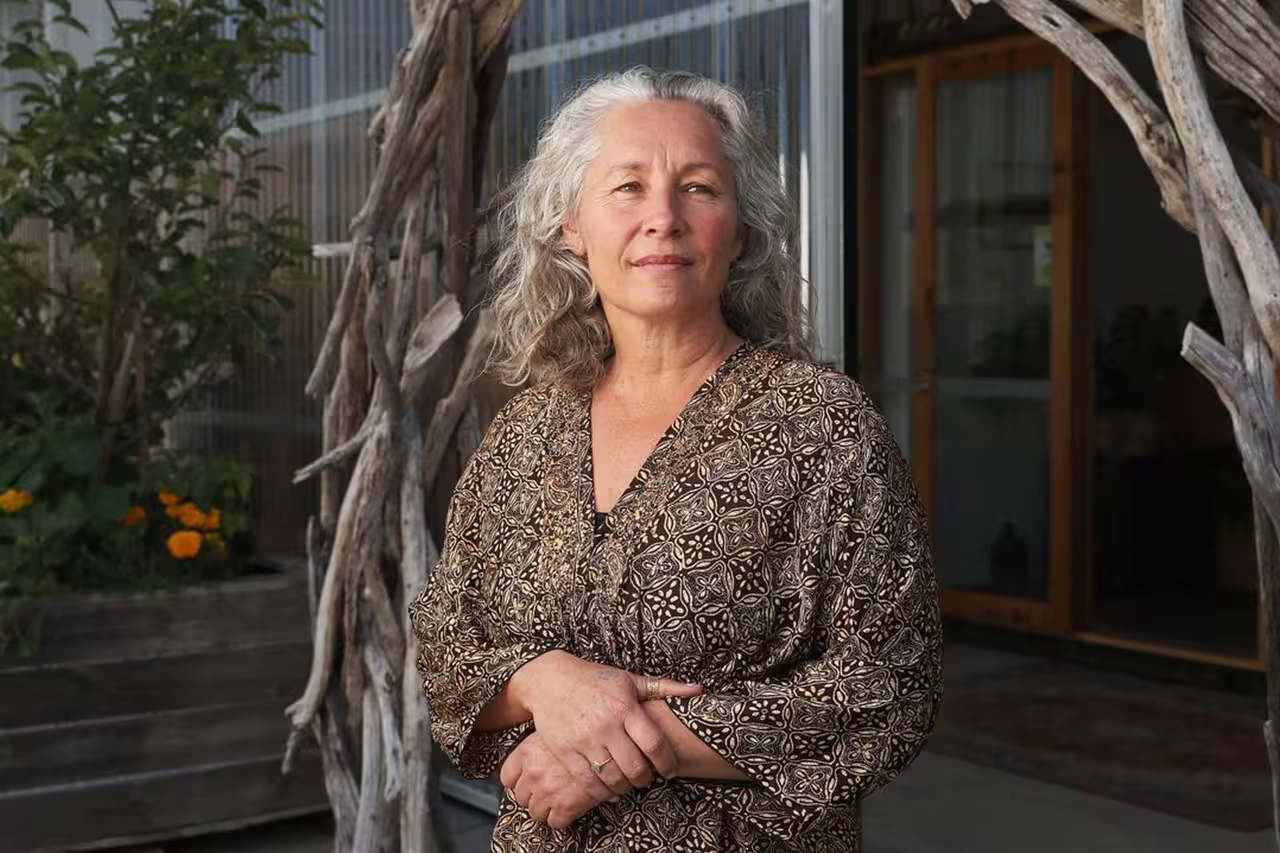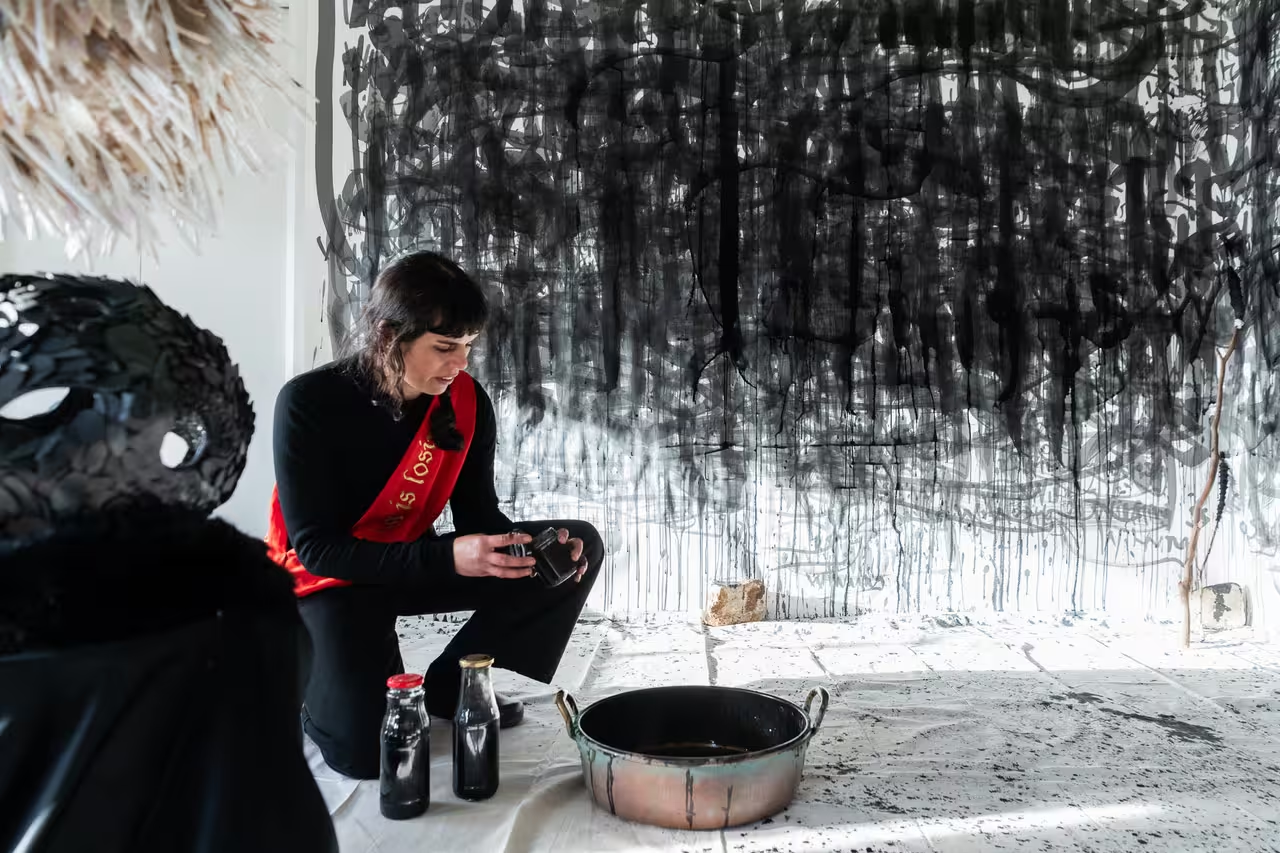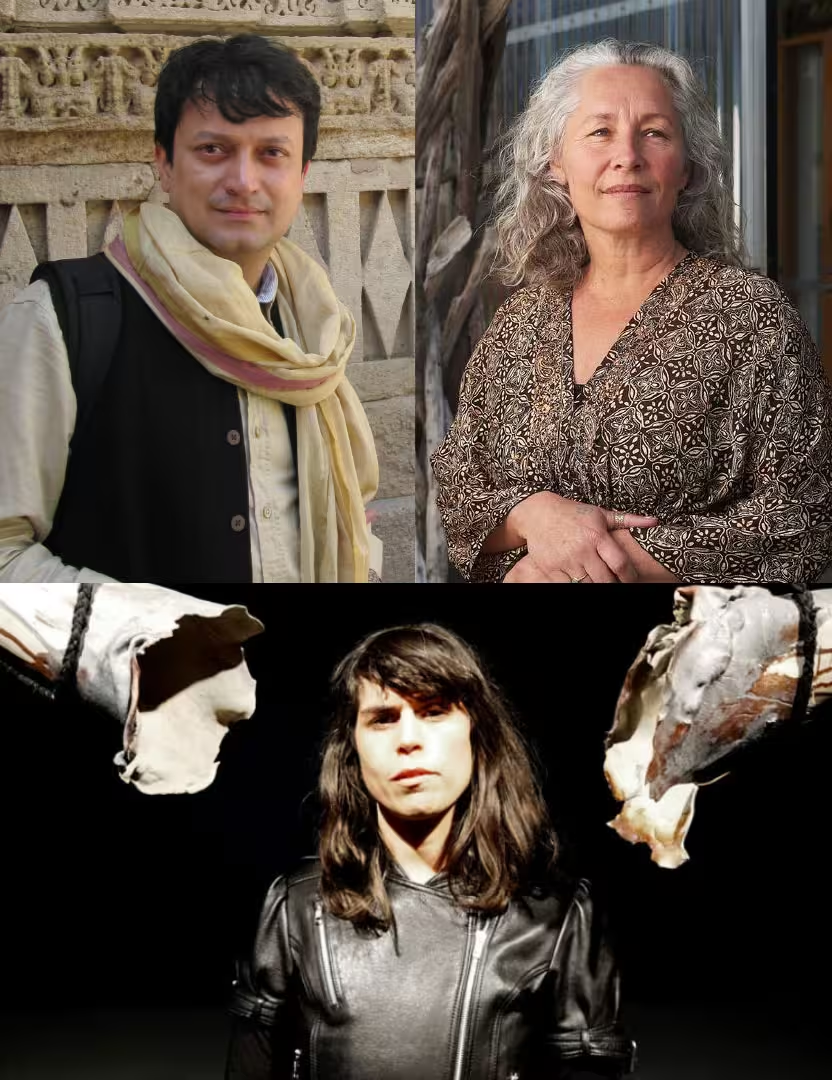
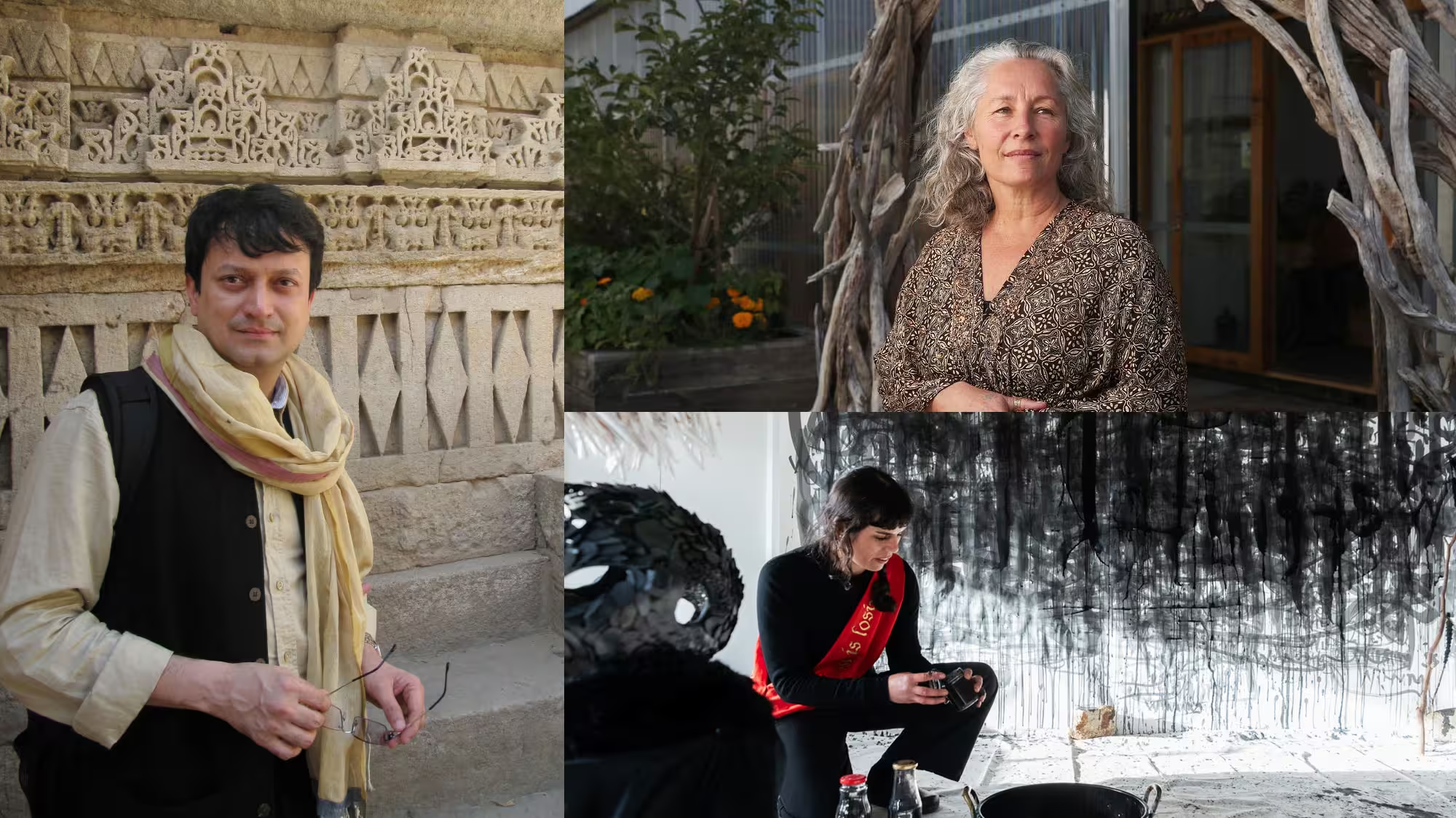
Sanctuary Residency
A new initiative in partnership with Centre for Stories, the Sanctuary Residency offers space and safe harbour for creative work, cultural dialogue and community connection.
In 2025, the program welcomes three outspoken and influential thinkers and voices—Ranjit Hoskote (India), Ruth Langford (Lutruwita / Tasmania), and Selena de Carvalho (Lutruwita / Tasmania) whose practices span environmental activism, cultural theory, interdisciplinary art and writing. Each will be hosted in Walyalup to undertake personal creative research, connect with local communities, and share their work through a range of small-scale offerings: workshops, public talks, publishing, and gatherings.
This residency is a space of care and critical thought—a sanctuary for artists whose practices are rooted in justice, land, language and the complexities of place. It reflects the Fremantle Biennale’s commitment to building connections across the Indian Ocean rim and supporting artists working at the intersections of climate, culture and community.
The Sanctuary Residency is not a retreat from the world—but a stepping-in. A space for rest, provocation, and creative action from those at the forefront of imagining more just and connected futures.
Program to be announced soon.
Date, Time and Location
to be announced
Entry
fRee
Image Credit
1.Ranjit Hoskote, Portrait by Nancy Adajania Patan. 2. Ruth langford. Courtesy the artist. 3. selena de carvalho, if a dead river could speak. Courtesy the artist.
Ranjit Hoskote is a poet, cultural theorist, translator and curator. He is the author of more than 30 books, including eight collections of poetry, among them Vanishing Acts: New & Selected Poems 1985-2005 (Penguin, 2006), Central Time (Penguin, 2014), Jonahwhale (Penguin, 2018), Hunchprose (Penguin, 2021), and Icelight (Wesleyan University Press in the USA and Penguin in India, 2023). Hoskote’s translation of a celebrated 14th-century Kashmiri woman mystic’s poetry has appeared as I, Lalla: The Poems of Lal Ded (Penguin Classics, 2011). More recently, his translation of the poems of the great 18th-century Urdu poet, Mir Taqi Mir, has been published as The Homeland’s an Ocean (Penguin Classics, 2024). Hoskote has been honoured with such prestigious awards as the Sahitya Akademi Golden Jubilee Award, the Sahitya Akademi Translation Award, the Sanskriti Award for Literature, the S H Raza Award for Literature, and the 7th JLF-Mahakavi Kanhaiyalal Sethia Award for Poetry. He has been a fellow of the International Writing Program, University of Iowa, and has held writing residencies at Villa Waldberta, Munich, and the Polish Institute, Berlin. He is a member of the Editorial Board of the Murty Classical Library of India, published by Harvard University Press. Ranjit has curated or co-curated over 40 exhibitions. He was the curator of India’s first stand-alone national pavilion at the Venice Biennale (2011) and co-curator of the 7th Gwangju Biennale (Korea, 2008).
Ruth Langford has a diverse background in environmental/ social/ justice/ youth work and the arts and divides her time between projects that reflect her passion for people, culture, nature and justice. Ruth draws upon the cultural knowledge of her Yorta Yorta mother and the Aboriginal community of Tasmania where she was born. She established Nayri Niara a Centre for the Arts of Healing at Lunuwunna Alonnah, Bruny Island. Ruth is a talented musician, capable facilitator and the co-producer of the Strong Song Project which re-engages traditional practices of healing and sharing knowledge through song and storytelling. Ruth established Healing on Country retreats for community women experiencing violence within the family as Coordinator of the Indigenous Women’s Legal Centre, and has worked as a youth worker and coordinator for the Justice Mentoring Program assisting Aboriginal people reintegrating to family and community after long term incarceration.
Selena de Carvalho (PhD) is an inter-disciplinary artist, designer, maker and risk taker of settler, refugee and migrant heritage based in lutruwrita/Tasmania- ‘Australia’. Selena purposefully connects creativity in a (post) activist context amplifying the ecological imagination. Selena views her creative work as a cultural response – ability. Throughout this practice she seeks out materials and environments that have weathered various forms of frontline disturbance, with-nessing and interpreting on behalf of the more-than-human world. Across different modes her work seeks to amplify the voices of marginalised more-than-human agents. This is the long term and current focus of Selena’s creative attention and operates as a framework for deeper inquiry braiding numerous mediums including participatory installation, performance, workshops, sculpture, time-based media, urban hacking, print media and text.
More information coming soon…
More information coming soon…
More information coming soon…
